No products in the cart.
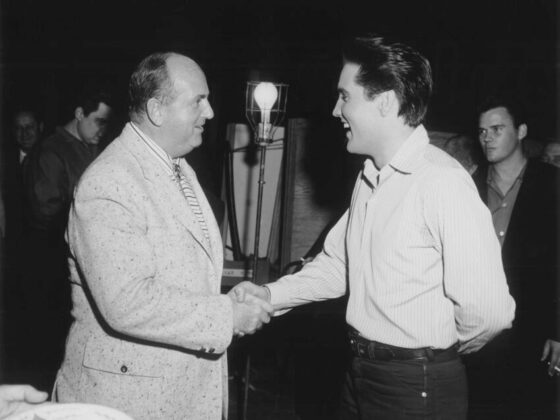
‘He was a life force’: Elvis biographer on the man who made the King a star
Award-winning Elvis biographer Peter Guralnick shares a new eye-opening look at the complicated story of Elvis’s manager
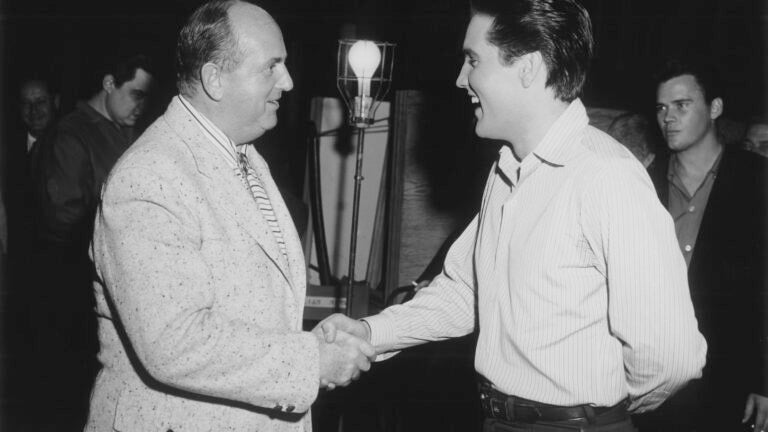
It’s easy to paint Colonel Tom Parker with one brush.
In Baz Luhrmann’s Oscar-nominated “Elvis” (2022), Tom Hanks portrayed Elvis Presley’s infamous manager almost like a comic book villain — prosthetic nose, unidentifiable foreign accent. He almost glares, eyes twinkling, the consummate swindler. The vibe: Boris from old Bullwinkle cartoons.
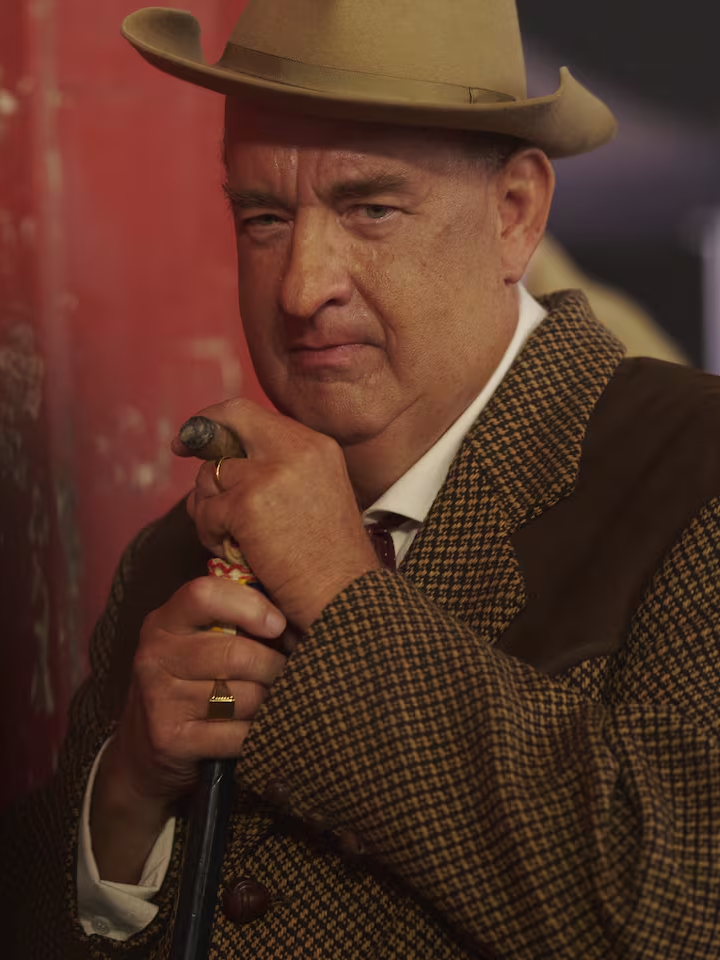
The real Parker didn’t seem to have a remarkable nose. Or an accent, as I learn here.
But while Hank’s Parker is near-parody, an archetype of Old Hollywood’s Bad Guy, it’s essentially how Parker has historically been portrayed and discussed in the zeitgeist for decades: The marketing puppeteer, the snake in the grass, the schemer and huckster who milked Elvis for all he was worth, drained him out like a wash rag over the sink in Vegas.
Advertisement:
Real human beings are never that one-dimensional and uncomplicated — whatever their faults.
Award-winning writer Peter Guralnick’s meticulously detailed, impeccably researched, 600-page biography “The Colonel and the King,” out Aug. 5, paints a far more complex and sympathetic portrait of “Colonel.”
The West Newbury author and ’67 Boston University alum is widely considered a King expert. His Elvis bios, 1994’s “Last Train to Memphis” and 1999’s “Careless Love” are considered definitive. Bob Dylan said the former book “cancels out all others.”
It was while writing about Elvis that the New Englander first met Parker, whom he calls “Colonel” in both our conversation and in his book. (“Everyone called him Colonel,” he notes.)
Advertisement:
Now, drawing on never-before-published correspondence from Parker’s personal archives, interviews with family and business associates, and his own correspondence and interview with Parker, Guralnick uses every brush in the studio to paint a complex, understanding, portrait of a man who — love him or hate him — helped change American pop history by getting a kid named Elvis off the Louisiana Hayride and on to every TV set in America.
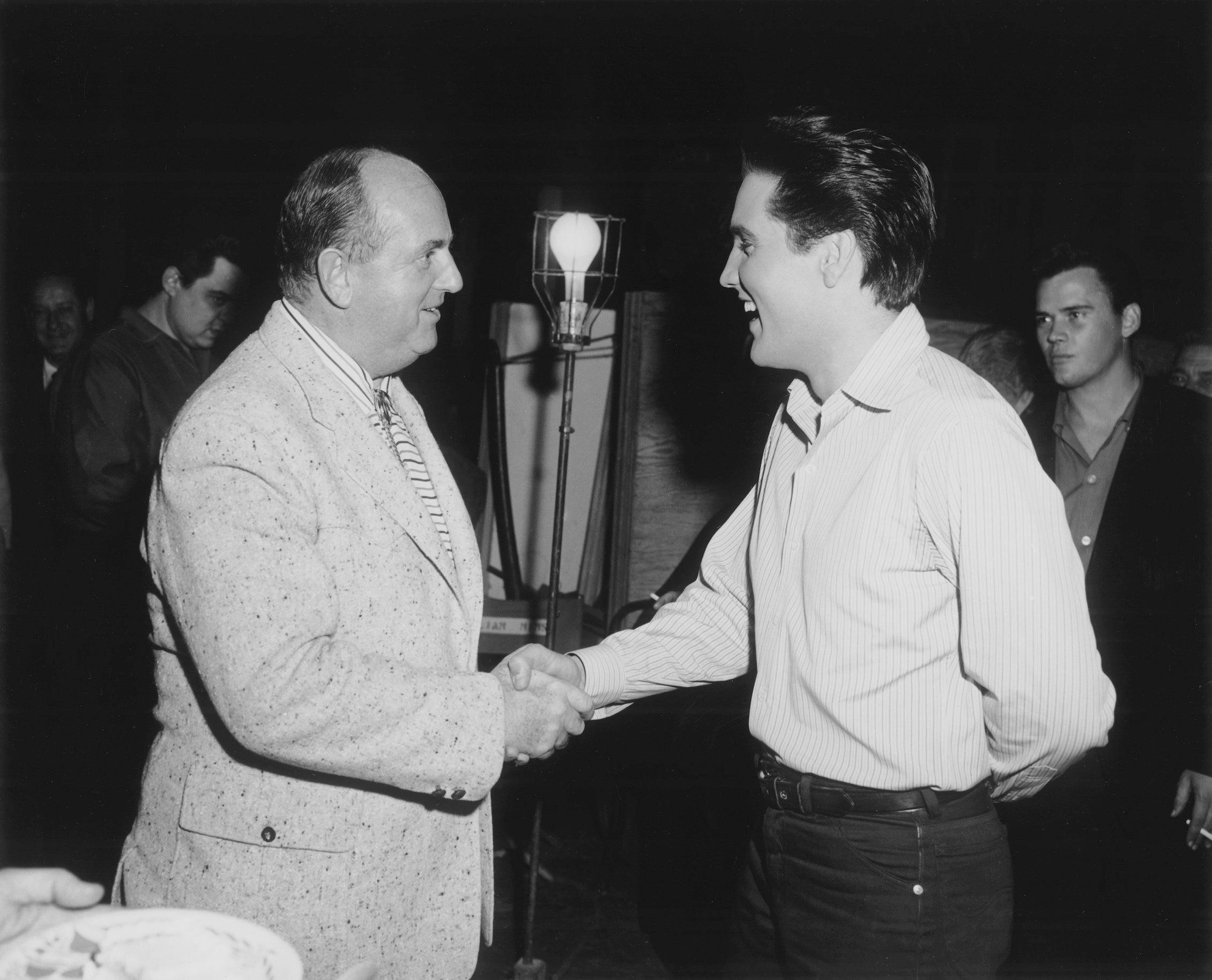
“Colonel” was born Andreas Cornelis van Kuijk in 1909, in the Netherlands, he loved the circus. Ran away often. When his 5th grade teacher rapped him on the knuckles, he bit her leg and quit school, never looking back. He escaped to the U.S at age 16, took on the name Tom Parker. Joined carnivals. Spent time “hoboing around the country.” Joined the U.S. Army. Went AWOL. Reenlisted. Ended up in Walter Reed. Joined more carnivals. Loved elephants.
He was a self-proclaimed “carny,” a carnival barker who ultimately became Elvis’s barker, ringleader of the Presley circus.
“Book One” is essentially Guralnick’s 300-some-odd page Parker biography. “Book Two” is another 300 or so pages of Parker’s correspondence unearthed and compiled, with explanatory notes and context from Guralnick. It’s peppered with photos.
Advertisement:
The result is a beautifully explosive mix: part David McCullough-style biography, with meticulously researched detail, and part Gregory Maguire’s “Wicked” — a reimagining that gives the so-called villain her own voice. Suddenly, the witch is Elphaba.
This changes everything about the Elvis story we thought we knew.
If, like me, all you really know of Parker, who died in 1997 at age 87, is Tom Hanks in makeup, this will fascinate. If you’re an Elvis die-hard, it’s essential reading.
I had to call Guralnick, 81, who tells me his research led him to see “a much more complex picture of Colonel… It’s the view from the other side of the mirror.”
Going in, “I thought of him as a character, in the best sense of the word. But I found so much more. Vulnerability and sensitivity… his sense of fun, his humor, his appreciation for life, the extent to which the vitality and the imagination that he just showed all of his life. He was always thinking. He was always engaged. He was a life force.”
I called Guralnick at home ahead of his Aug. 6 book launch at Harvard Bookstore where he’ll be in conversation with Boston music legend Peter Wolf.
Advertisement:
Interview has been edited and condensed.
Boston.com: First, I love that you’re launching this with Peter Wolf. I just interviewed him on his book. He launched it at a local event with you. You guys have switched chairs.
Guralnick: That was really fun. What a great book. He filled the place.
So tell me about the origin of this book. You wrote that the seed was planted some 30 ago when you entered Parker’s archives, that it was “like entering Ali Baba’s cave.”
I’d known Colonel somewhat, at that point, for more than five years. My greatest insight into him was through letters we exchanged. When I got into the archives, my wife Alexandra and I were in this cavernous warehouse — all of Colonel’s papers, records, memorabilia were untouched, undisturbed, in battered old file cabinets and traveling trunks. [In] these letters, I saw something I’d never seen before. The manner in which they were written, the extent to which they detailed things — it revealed an entirely different person than the person I thought I knew.
You suggested he compile a book of letters.
I wrote: “You may think I’m crazy…” He wrote back, “Your suggestion is a little late.”
[laughs]. Right.
After he died, his wife Loanne basically said, “Could I help?” We started corresponding. She recalled stories he’d told about growing up in Holland, which he didn’t tell her until very late in his life. She didn’t know, when she met him, that he was Dutch. Nobody knew.
So he didn’t speak with an accent, like in the Baz Luhrmann movie?
No, he didn’t speak with any accent. Nobody dreamt he was Dutch.
Wow. In that movie, we see such a different Tom Parker than we see in this book.
Well, I haven’t seen the movie. I did see a couple of [trailers.] I thought, if he can go 50 years without being detected [as Dutch], how in hell would he go 50 years with an accent like that?
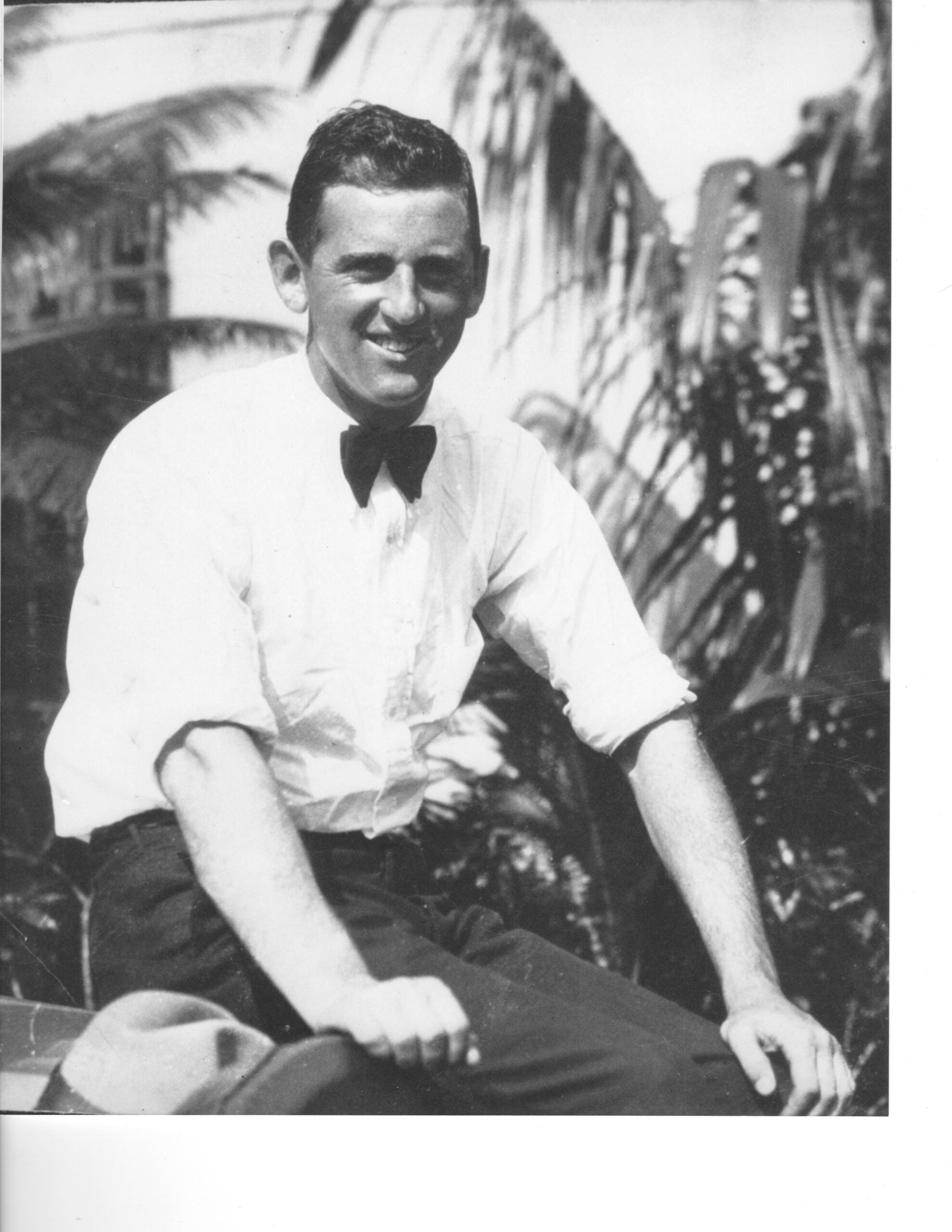
[laughs] Exactly. That’s fascinating. So what revelations did you discover in your research?
The revelations were in depth of context. In “Last Train to Memphis,” and “Careless Love,” you won’t find an evil villain there. You’ll find a colorful character.
Advertisement:
If you speak to the people with whom Colonel did business — and I spoke to many — you’ll find [they] speak of a man of the utmost integrity, whose handshake you could depend on, who might make a hard deal, be a hard negotiator, but it was a deal each party could live with.
[In his letters] he opens up his heart in a way that is so uncharacteristic of his overall demeanor. Colonel’s only concern was to fight for his artist, and how you could rewrite a contract, not to screw the other person, but to the advantage of your artist.
There’s a quote that struck me. You write that merchandiser Hank Saperstein “told Elvis biographer Peter Whitmer that the Colonel certainly talked like a carny, acted like a carny, he even said he was a carny — ‘but he was one hundred percent honest.’”
Saperstein said Colonel was honest to a fault. If you read the letter Colonel wrote him, Colonel gives Saperstein a long lecture on business ethics: The people manufacturing these items for you are hard workers. You have to pay them [on time.] It’s almost a model lecture on business ethics. That’s the kind of revelation I had.
You said Loanne, who died in 2020, shared insights.
Everyone in the world knew about Colonel gambling. [But] I never would’ve thought of calling him a “gambling addict.” Loanne — I can only imagine how hard this must’ve been to tell me this — described him as a “gambling addict.” How, as time went on and tours became more difficult for him, he would spend days in the casino.
It showed a vulnerability and weakness I could’ve never imagined. In saying this, I feel like I’m doing a disservice to Colonel, because to me, the overwhelming impression is of somebody with such vitality. He was a life-force. He was so creative and inventive. In the overall picture, he was a creative genius.
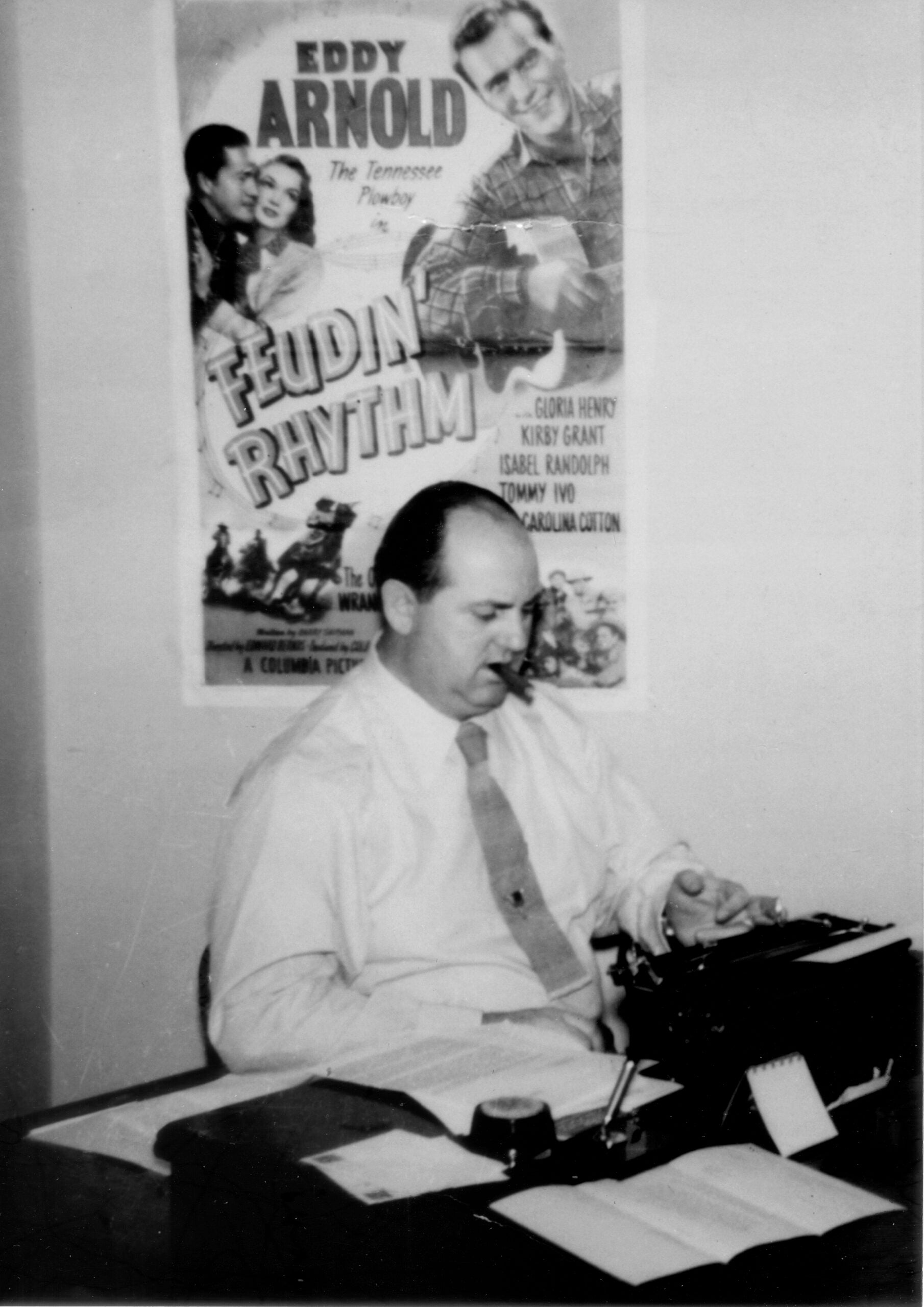
You mention, a few times, an idea Parker had for a book title: “How Much Does It Cost If It’s Free?” He never wrote the book, but you write that title “represented Colonel perfectly.”
The bargain-beyond-belief doesn’t exist. In the end, there’s always a price. It represented, I’d say, a skeptical — not a cynical — approach, the way you have to closely examine deals you’re offered. Also, in the sense of play in that title.
Advertisement:
His idea was to write about show business. He totally believed in show business. He believed in the world of show-people, a democratic world where it didn’t matter how high or low you were born. You proved yourself by your character. You proved yourself by your integrity.
He believed in the value of the product from his time with circuses and carnivals, to country and western shows. I’m not trying to sell you on believing in it. But it’s what meant the most to him.
I was interested in his childhood love of the circus and carnivals that stuck with him though adulthood. Running away with carnivals, being a self-proclaimed “carny.” He had a promo idea, “Wedding on the Wheel,” [where couples could get married on the Ferris wheel then their whole wedding party would end up buying tickets for rides, ect. at the carnival.] He was the ultimate carnival marketing guy, which carried over to being the ultimate pitchman and marketer in music.
That’s right. He brought those lessons of pitching, selling, direct-selling. He believed in the rhythm of the pitch. He wrote scripts for local radio DJs that were almost rhythmic.
He brought all those [carnival] lessons to working with Eddy Arnold. If the biography of Tom Parker ended before he met Elvis, his work with Eddy Arnold — the template for everything he did with Elvis — is amazing. He built him into a star. But what you said is true, he absolutely brought all these lessons and modified them.
Elvis as a phenomenon feels like the perfect storm: the ultimate PR man meets a massive talent. Do you think there would be an Elvis without Tom Parker? Would we be talking about Elvis now?
The only other person in the world at that time willing to take a chance on Elvis was Sam Phillips, and he was not able to take him beyond.
It would be easy to say Colonel was won over by dollar signs. He saw something in Elvis. He believed in entertainment, and this was the greatest entertainer he ever saw. He was prepared to risk everything. Elvis was just a regional star. When Colonel went around to other promoters and bookers, none of them were willing to take a chance on Elvis.
Advertisement:
Colonel was prepared to risk everything. He had a star in Hank Snow, and was prepared to risk everything for this untried, unproven talent. And he won.
I don’t think there was anybody else who would’ve devoted 36 hours a day to Elvis, to selling Elvis. I don’t think there was anybody else with the wherewithal, the imagination, the sheer creativity.
I have a chapter, “Defending Elvis.” That’s what he was doing every minute of every day. Defending Elvis against being taken over by people of lesser imagination. All of them wanted a more homogenized Elvis, to tamp down Elvis.
When it came to selling him, Colonel was prepared to sell him on a world stage. Colonel worked every minute of every day. And he did really almost to the end of his life.
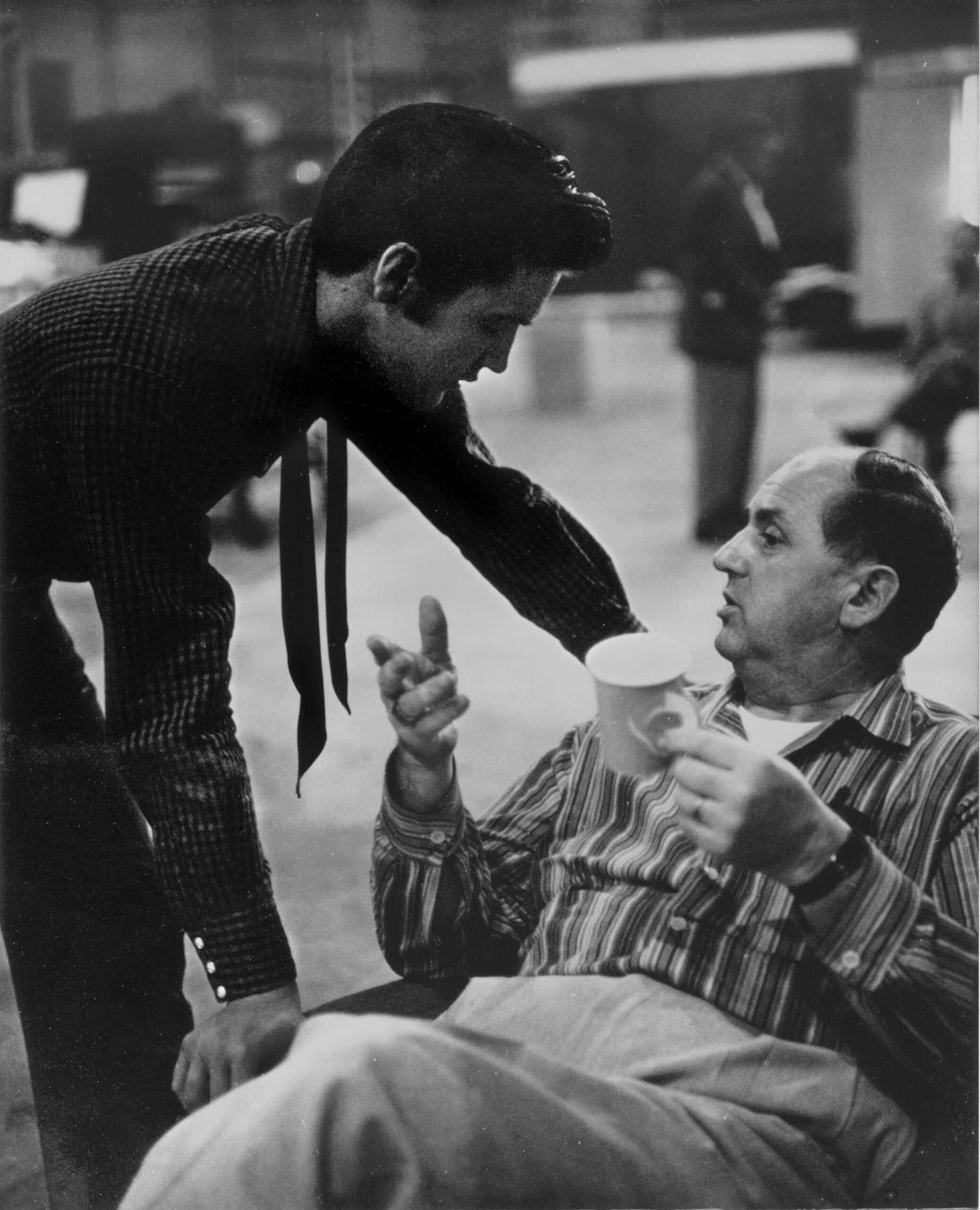
What would you hope readers take away from the book?
An appreciation for a true original. An appreciation for a person of great complexity, of great vitality, of great imagination. A sense of him as someone who was totally devoted to his artist in every way, and did his best — and all of our bests are imperfect — to advance the opportunity for his artist to express himself.
Anything you want to add?
To go back to your question about his book idea — I came to feel that the reason he couldn’t write that book is all his life, he’d articulated the view that the artist wears the white hat, in terms of a classic Western. The manager wears the black hat. He wasn’t going to have his artist not wearing the white hat. Not because Elvis was a villain, but he couldn’t tell a story where Elvis was not the hero.
Advertisement:
Lauren Daley can be reached at [email protected]. She tweets @laurendaley1, and Instagram at @laurendaley1. Read more stories on Facebook here.
Sign up for Book Club
Stay up to date on local books news, events, and recommendations from Boston.com.





